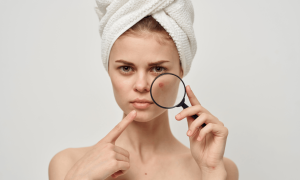Acne is one of the most common skin conditions in Australia, affecting nearly 85% of people aged 15-24 and persisting into adulthood for many (Australian Institute of Health and Welfare, 2020).
While mild acne can often be managed with over-the-counter treatments, severe or persistent cases may require professional intervention.
In Brisbane, dermatologists see countless patients struggling with acne that hasn’t responded to standard treatments.
But how do you know when it’s time to see a specialist?
We consulted leading Brisbane dermatologists to help you decide whether your acne needs professional care.
When Should You See a Dermatologist for Acne?
Here are the key signs that your acne may require expert treatment:
1. Over-the-Counter Products Aren’t Working
If you’ve tried multiple acne treatments (like salicylic acid, benzoyl peroxide, or retinoids) for 6-8 weeks without improvement, it may be time to see a dermatologist. Persistent acne often needs prescription-strength medications, such as:
● Topical antibiotics (clindamycin)
● Oral antibiotics (doxycycline)
● Hormonal treatments (for women with hormonal acne)
● Isotretinoin (Accutane) for severe, cystic acne
2. You Have Painful, Cystic Acne
Deep, inflamed cysts or nodules can cause scarring if not treated properly. Dermatologists can administer:
● Cortisone injections to shrink large cysts quickly
● Prescription oral medications to prevent future breakouts
● Advanced extraction techniques to reduce infection risk
3. Your Acne Is Leaving Scars or Dark Spots
Post-inflammatory hyperpigmentation (dark marks) and scarring are common in 20-30% of acne sufferers (Australasian College of Dermatologists, 2021). A dermatologist can recommend:
● Laser therapy (fractional or CO2 lasers)
● Chemical peels to improve skin texture
● Microneedling to stimulate collagen and reduce scars
4. Your Acne Is Affecting Your Mental Health
Studies show that acne can lead to anxiety, depression, and low self-esteem (Beyond Blue, 2019). If your skin is impacting your confidence or daily life, a dermatologist can provide:
● Personalised treatment plans for faster results
● Psychological support referrals if needed
5. You Suspect an Underlying Medical Condition
Sometimes, acne is linked to conditions like:
● Polycystic ovary syndrome (PCOS)
● Hormonal imbalances (high androgens)
● Gut health issues
A dermatologist can run tests and recommend holistic treatments.
6. You’re Experiencing Unusual Symptoms
If your acne is accompanied by:
● Severe redness or swelling
● Fever or pain (signs of infection)
● Sudden adult-onset acne (could indicate hormonal shifts)
…you should seek professional advice immediately.
What to Expect During a Dermatologist Visit in Brisbane
Brisbane dermatologists follow a structured approach:
- Medical History Review – Discussing your acne timeline, triggers, and past treatments.
- Skin Examination – Assessing acne type (comedonal, inflammatory, cystic).
- Personalised Treatment Plan – May include prescriptions, in-office procedures, or lifestyle adjustments.
- Follow-Up Visits – Monitoring progress and adjusting treatments as needed.
Final Thoughts: Don’t Wait Too Long
While mild acne can often be managed at home, delaying professional treatment for severe cases can lead to permanent scarring and emotional distress. Brisbane dermatologists emphasise early intervention for better long-term results.
If you’re unsure whether your acne needs expert care, book a consultation with a Brisbane dermatologist—many clinics offer telehealth options for initial assessments. Your skin health is worth it!



